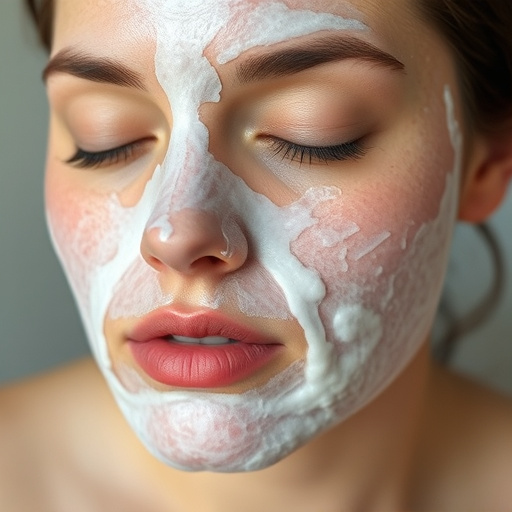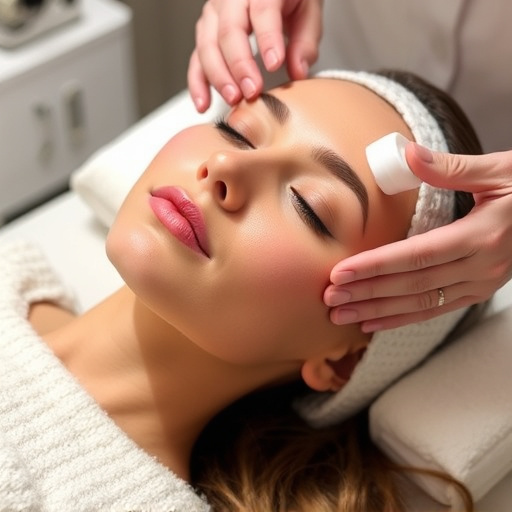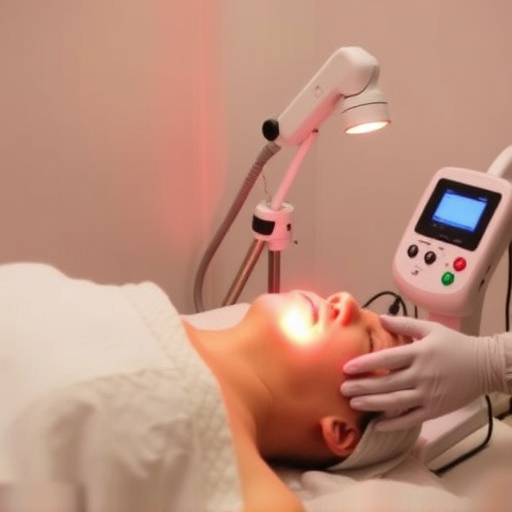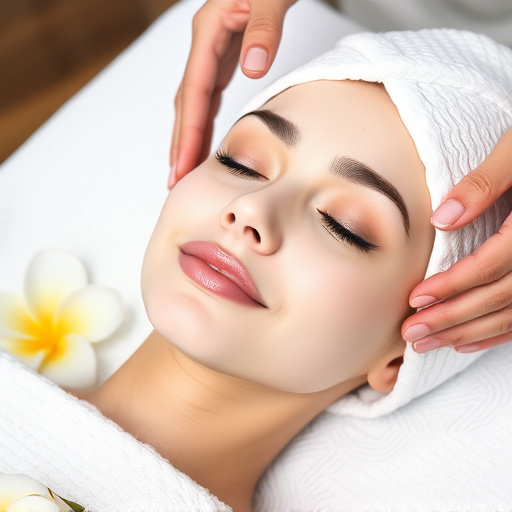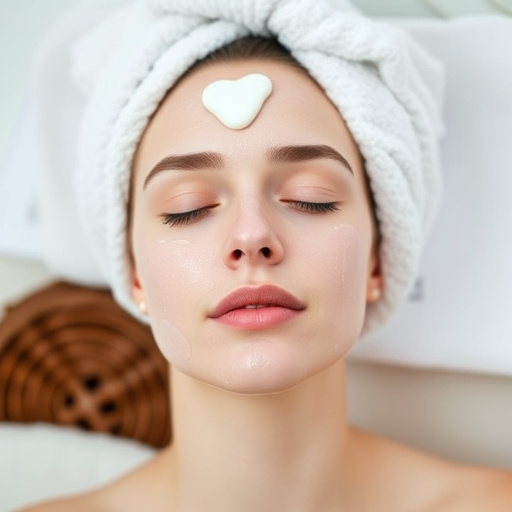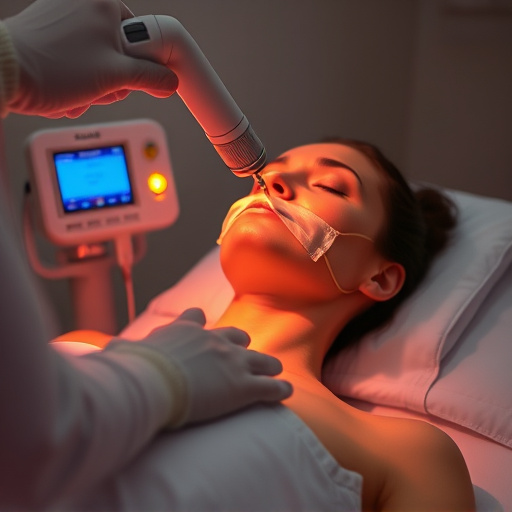Chemical peel services offer a popular and non-invasive way to improve skin texture, appearance, and overall health. By exfoliating dead cells and stimulating collagen production, these treatments enhance hydration and provide long-lasting clarity and radiance. The ideal chemical peel is chosen based on individual skin type and concerns like fine lines, hyperpigmentation, or acne scars, with AHAs and BHAs targeting specific needs. Consulting a professional ensures the best results for smoother, brighter skin.
Uncover the transformative power of chemical peel services for achieving smoother, brighter skin. This comprehensive guide delves into the world of chemical peels, providing insights into their basic functioning and remarkable benefits. From enhancing skin texture to revitalizing dull areas, these treatments offer a non-invasive approach to skincare excellence. Discover how choosing the right chemical peel, tailored to your unique skin type, can unlock a youthful glow and leave you confident in your skin’s appearance.
- Understanding Chemical Peel Services: The Basics
- Benefits of Chemical Peel Treatments for Skin
- Choosing the Right Chemical Peel for Your Skin Type
Understanding Chemical Peel Services: The Basics
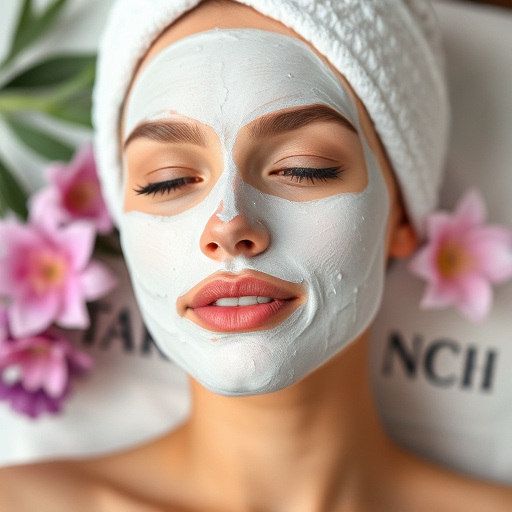
Chemical peel services have emerged as a popular choice for those seeking to transform their skin’s texture and appearance. This non-invasive procedure involves applying a chemical solution to the skin, which gently lifts away the top layers to reveal smoother, brighter, and more youthful-looking skin. The process is designed to treat various skin concerns, including roughness, dullness, fine lines, and even age spots.
These services are not just about achieving aesthetic results; they also play a significant role in maintaining overall skin health. By removing the outer layer of skin cells, chemical peels can stimulate collagen production, enhance cell turnover, and improve skin hydration. This not only provides immediate improvements but also contributes to long-lasting skin clarity and radiance. Many people incorporate regular facial treatments, including hydrating facials, into their skincare routines after a chemical peel to optimize results and keep the skin looking its best.
Benefits of Chemical Peel Treatments for Skin
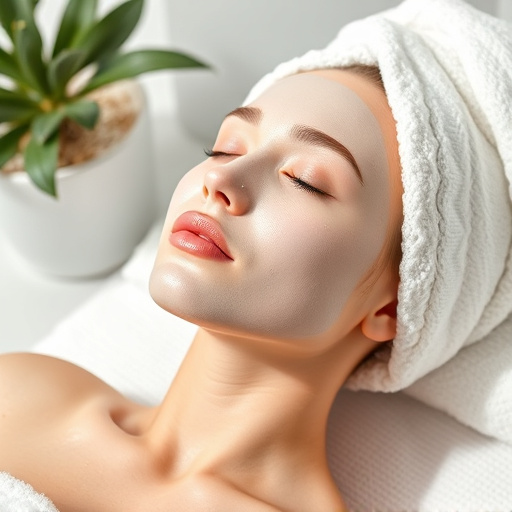
Chemical peel services offer a multitude of benefits for improving skin texture and addressing various skin concerns. By applying a chemical solution to the skin’s surface, these treatments gently exfoliate, removing dead skin cells and unclogging pores. This process reveals smoother, brighter, and more even-toned skin beneath, providing an instant rejuvenation effect. Not only do chemical peels enhance the overall appearance of the skin, but they also stimulate collagen production, leading to improved skin elasticity over time.
One of the key advantages of chemical peel treatments is their versatility. They can effectively target a range of issues, including acne scars, fine lines, and hyperpigmentation, making them popular choices for various facial treatments. Additionally, these procedures are relatively non-invasive, offering a safer alternative to more aggressive skin resurfacing methods. Moreover, chemical peels can improve skin absorption of topical products, enhancing the effectiveness of subsequent skincare routines, especially in achieving better pore refinement and acne treatments.
Choosing the Right Chemical Peel for Your Skin Type
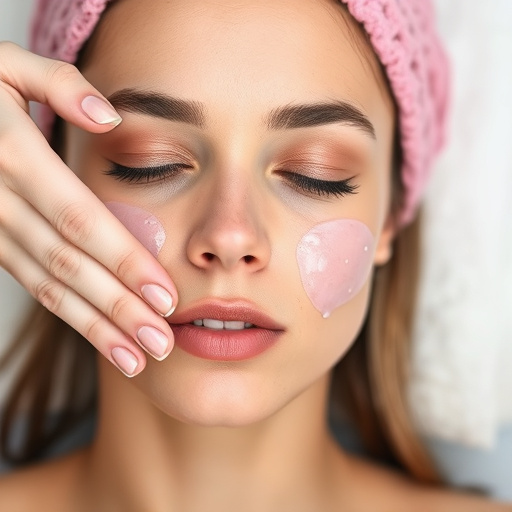
When considering chemical peel services for smoothing rough or dull skin areas, selecting the right type of chemical peel is paramount based on your skin’s unique needs and characteristics. Different chemical peels target various concerns, from fine lines and wrinkles to hyperpigmentation and acne scars. For instance, alpha hydroxy acids (AHAs) like glycolic acid are popular choices for gentle exfoliation and brightening dull complexions, while beta hydroxy acids (BHAs) such as salicylic acid are effective in treating oily skin and acne due to their ability to penetrate pores deeply.
Choosing the right chemical peel involves understanding your skin type. Oily or acne-prone skin benefits from peels with antibacterial properties that also help unclog pores, like salicylic acid. Dry or sensitive skin may require gentler options, such as AHAs of lower concentrations, to avoid irritation and excessive dryness. Consulting a dermatologist or a knowledgeable esthetician at a medical spa services provider can help you make an informed decision, ensuring the chosen chemical peel aligns with your specific goals for achieving a smoother, more radiant complexion.
Chemical peel services have proven effective in smoothing rough or dull skin areas, offering significant benefits for various skin types. By understanding the basics and choosing the right treatment, you can achieve a radiant, healthy complexion. Incorporate chemical peel services into your skincare routine to reveal softer, more even-toned skin.

